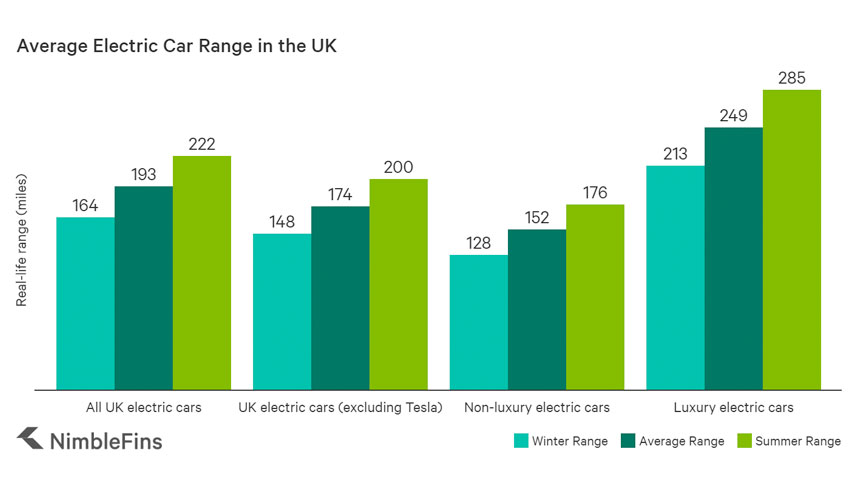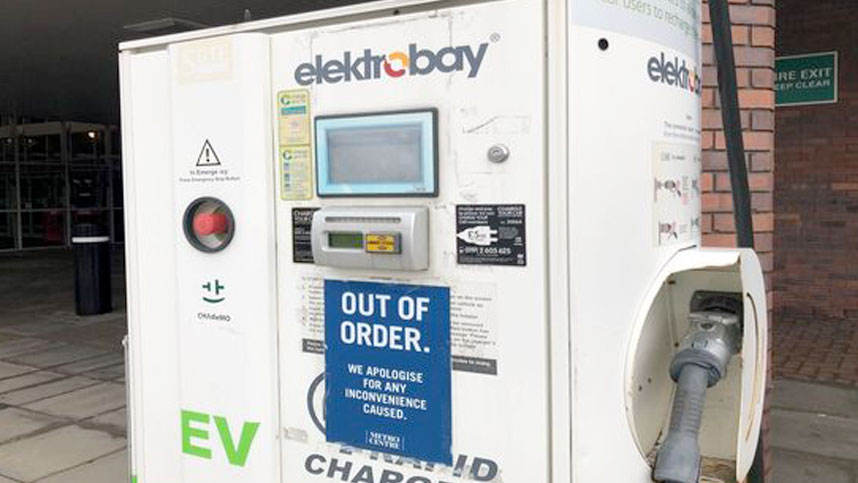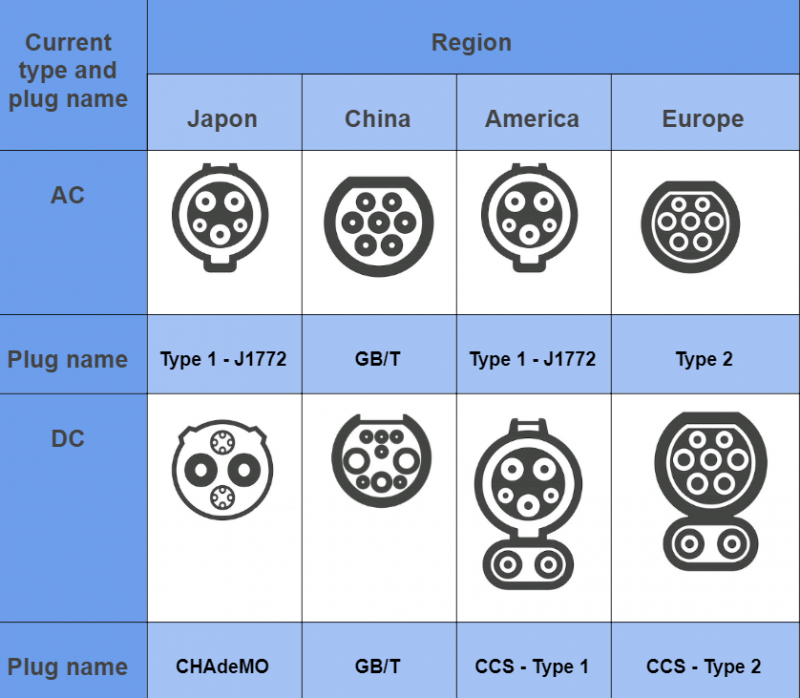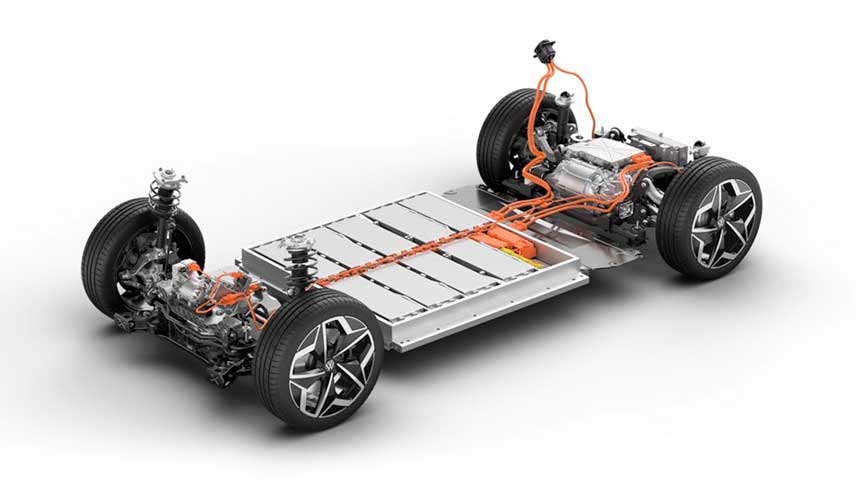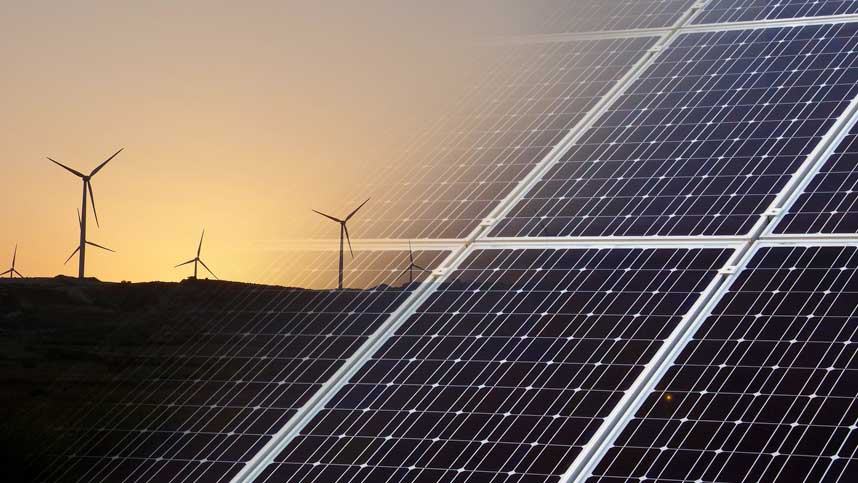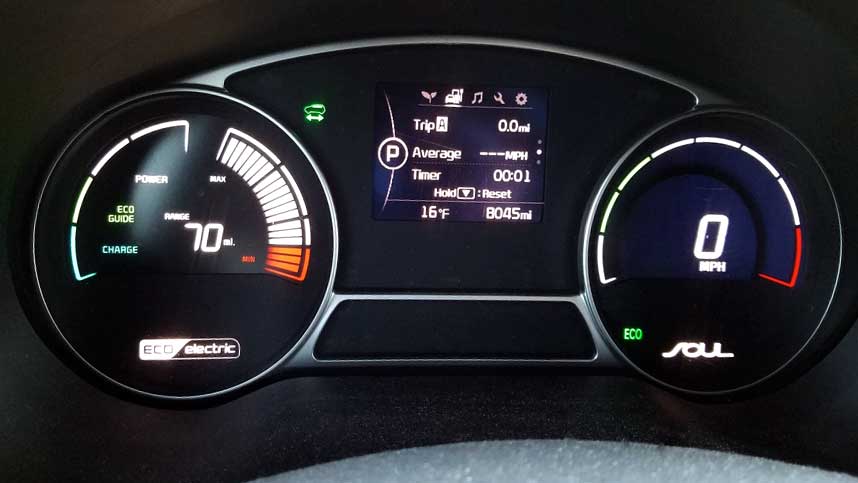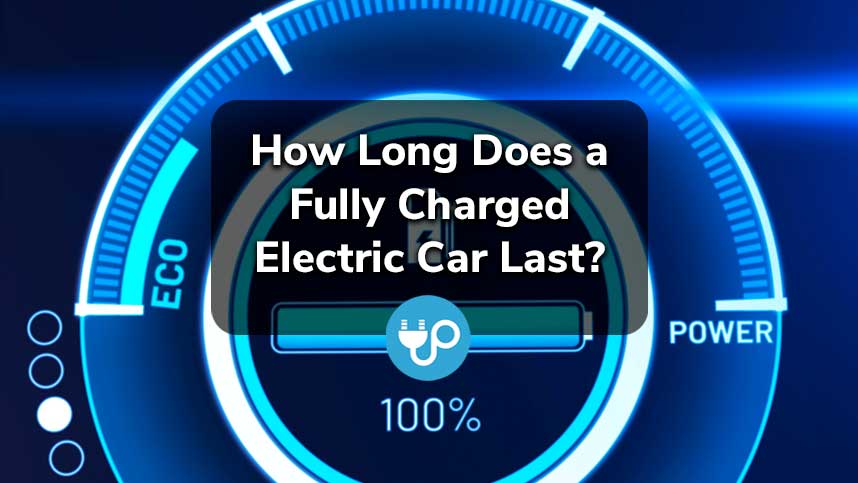
How Long Does a Fully Charged Electric Car Last?
With the increasing move towards electric vehicles, there’s no doubt that one of the most frequently asked questions is how long does a fully charged EV last?
Obviously, no one wants to invest in switching to electric car technology without having clear knowledge of this.
Being left stranded in an electric car that’s run out of charge is a daunting proposition.
With an internal combustion engine, a jerry can of fuel could save the day.
But when an EV runs out of juice, it’s a whole different prospect.
Let’s dive in and discuss key aspects relating to this concern in more detail.
By the end of this article, you’ll have a much clearer idea of electric car ranges.
Chapters
Average Electric Car Range
When it comes to the average electric car, you can expect a range of between 100 and 300 miles from a fully charged EV.
In the UK, the average electric car range is 193 miles.
This obviously depends on make and model.
Furthermore, electric car battery technology is continually improving.
Whilst average ranges may not be quite up to par with regular petrol or diesel engines cars yet, the gap is quickly closing.
It’s clear as battery technology progresses and EV’s become more energy efficient, electric car ranges will become less of an issue.
What is Range Anxiety?
Range anxiety is the term used to describe the fear that an EV has insufficient range on a fully charged battery to drive longer journeys.
The vast majority of drivers are unnecessarily concerned about this, with many often overestimating how often the EV battery will be drained.
Range anxiety is gradually becoming less of a concern however, with the UK’s public charging infrastructure improving.
It is worth noting however that the sale of electric cars in the UK is quickly gathering pace.
So the rollout of the charging infrastructure may struggle to keep up, making this problem even greater in years to come.
Norway, which is way ahead of the game and boasts over 12,000 public charging points is a prime example, yet queues are still commonplace.
Whilst this could be a genuine concern as the proportion of EV’s on our roads increases with insufficient chargers to go around, future advancements in battery technology should help to alleviate this.
You may not be aware that there’s approximately 39,000 charging connectors spread out in 14,500 different locations across the UK.
Hence, even if you were to notice your EV’s charge is getting depleted, you should be able to find somewhere to charge while on the move.
Just as long as a chargepoint is available and not out of order!
Two thirds of the households in the UK have the advantage of having access to off-street parking.
Hence, many EV owners decide the best route is to install a residential charging unit and carry out electric car charging at home.
The common practice is to charge their EV overnight using cheaper overnight energy tariffs.
In most cases this should eliminate range anxiety for those that only travel short, infrequent distances.
For those who drive regular longer journeys, such as commuters, finding somewhere reliable to regularly charge could still put these drivers off switching to EV.
There’s also the millions of people living in flats and terraced homes without driveways that need to be considered.
So where do they charge?
As mentioned, the public rapid charger infrastructure is improving.
But plugging a car in to charge from empty to full in 45 minutes or so is by no means as convenient as filling up a tank of fuel in seconds.
The solution to this could be to rethink the way we drive, park and charge EVs.
Charger sharing is one option.
Those without driveways could park and charge their car on a nearby neighbour’s driveway a couple of times per week.
But is this a practical longer term solution?
The other more logical solution is peer-to-peer charging.
Instead of charging en route and having to make an inconvenient time consuming stop, you instead charge at destination, ensuring your car is fully charged to get you home on the return leg.
Using apps like Joosup, EV owners (EVO’s) book a charging session at a private off-street charging location close to where they’re headed.
When they arrive, they have the convenience of a parking space with EV charging ready and waiting for them.
So they simply pull up, park for the duration booked and simultaneously charge their EV.
Not more stopping en route. No more extended journey times.
So when they return to their car, it’s fully charged up and has plenty of juice to get home.
What is Charger Anxiety?
We can safely state that things have improved considerably over the past few years in the world of electric vehicles.
However, there’s no doubt that more needs to be done to reduce the anxiety that motorists have about investing and switching to EV.
Nowadays EV drivers are much better equipped than before, even if they need to find a place where they can charge during journeys.
Both private as well as public stakeholders are deploying charging points.
Moreover, battery sizes and EV ranges are improving as time goes by.
However, charger anxiety is still very prevalent.
Many motorists worry that the station may be out of order or malfunction, or the cable attached to the rapid charger may not work properly due to misuse or vandalism.
Then there’s also the issue of charger point unavailability, or as it is referred to, downtime.
This is in fact one of the main causes of charger anxiety.
This fear needs to be tackled well as it is one of the main reasons why the transition to EVs is taking longer than expected.
People understand that this is a more sustainable form of transportation, and that there are various advantages related to investing in an EV.
However, more peace of mind needs to be provided with regards to the infrastructure that is provided.
People need to feel confident that they can find where to charge their EV without any problem, and that ease of use and peace of mind can be experienced.
Apps like Joosup have been specticialyl designed to alleviate such anxieties about switching to EV.
By booking a parking and charging session at an off-street location at destination, charger anxiety immediately disappears having that reassurance there’s no public infrastructure hassles to worry about.
Hence, if EV drivers are to have complete faith in the charging infrastructure provided by network operators, sites need to be better maintained and expanded.
This will greatly help achieve a reliable EV charging experience to coincide with peer-to-peer charging and make going electric far easier.
Even with apps like Joosup, freely available public chargers are still critical.
Therefore, scheduling of regular preventative maintenance is key.
Communication channels available between service providers and EV drivers also need to be streamlined.
This will inform drivers of any downtime at certain stations, and help avoid disappointment.
Apps like Zap Map are going a long way to achieving this.
Factors Affecting EV Range
There are various factors that can affect the EV range, including;
Battery Age
Just as the battery life of a smartphone diminishes over time, so does the battery life of an electric car.
The older it gets, the shorter its range becomes.
According to a study, the average decline in energy storage of EVs is around 2.3 percent per annum.
So to give you a better idea, for an EV that has a range of 150 miles, some 17 miles will be lost after five years.
The rate of decline will slow down in the years following.
Battery Size
As a general rule, the larger the battery, the further you’ll be able to travel.
Consider it like having a bigger fuel tank.
Having said that, it is important to consider that a larger battery also means that it has more weight.
Hence, not all cars can be fitted with large batteries.
Smaller car models such as the Honda e and the Mini Electric are in fact fitted with relatively small batteries.
Driving Style
Your driving style and speed will also affect EV range.
Economical drivers can expect to get more range from their EV, as the faster you drive, the fewer miles you can expect to travel.
Weather
Weather conditions play an important role in influencing EV range.
The colder the temparatures, the less the EV range is going to be.
There will be more need to use heaters and blowers for example.
The exact same can be said in very hot conditions.
If your car needs to have air conditioning running constantly, the internal A/C condenser will drain a lot of power from the battery.
Electric Car Battery Efficiency
Electric cars are propelled by one, or sometimes more than one electric motor, which are powered by a rechargeable battery.
As a result, EVs are very energy efficient.
They convert over 77% of electrical energy from the grid to power.
Conventional internal combustion engine vehicles however, only convert around 20% of the energy stored in gasoline to power the axles.
Needless to say, EVs are also more environmentally friendly as they produce zero emissions.
Moreover, since electricity is a domestic energy source it leads to reduced energy dependence.
Alos, the batteries used in EVs are designed to offer an extended life.
According to studies conducted in this field, it has been concluded that EV batteries can last between 12 and 15 years in moderate climates, and between 8 and 12 years in more severe climates.
How Long Does an EV Battery Last?
As with anything, how you treat it and how you maintain it will have an impact on how long an EV battery can expect to last.
Most EV batteries are lithium-based.
Over time they will start to degrade, just as with batteries in mobile phones.
So it is normal that with the passing of time, the battery will not be able to hold its charge for as long as it used to.
Also, the range will be reduced over time.
Moreover, if you overcharge the battery or charge it at the wrong power input, you could cause damage which will degrade it more quickly.
Typically, most EV batteries last between 8 to 10 years.
Some manufacturers also offer a warranty on the battery, so you may wish to take that into consideration.
Top 10 Longest Range EVs
At the time of publication, the following cars are regarded amongst the longest ranging EV's on the market.
You can also reference the excellent EV Database, which has a fully up to date list of EV models available with ranges.
We will update this list as circumstances change:
Tesla Model S
This is the longest range electric car currently available in the UK, with a 100kWh battery that is capable of delivering 412 miles of range.
Ford Mustang Mach-E
With an 88kWh battery, this model can achieve up to 379 miles after a single charge.
BMW iX
This model is one of the most recent EVs to hit the market.
The BMW iX is equipped with a 70kWh battery which is claimed to offer 249 miles of range, whereas for the models with the 100kWh battery the range increases to 373 miles.
Tesla Model 3
This model offers 360 miles of range, while the cheaper version, the Standard Range Plus can offer 278 miles.
Tesla Model X
Equipped with a 100kWh battery, this model offers up to 360 miles of electric range.
Volkswagen ID.3
There are various options when it comes to battery sizes.
The ID.3 Tour for instance is equipped with a 77kWh battery that can offer a range of 336 miles, while the ID.3 Life claims to offer 263 miles of range with its 58kWh battery.
Skoda Enyaq iV
The cheapest version of the Skoda Enyaq comes with a 62kWh battery that is able to offer 256 miles following a full charge.
On the other hand, when equipped with a bigger battery of 82kWh this model can achieve 333 miles.
Porsche Taycan
We can confidently state that this is one of the most technologically advanced EVs currently available in the UK.
One can choose from a number of variants, with 301 miles of electric range being the highest available.
Hyundai Kona Electric
From a relatively small battery of 64kWh, this model is able to offer 300 miles of range, which is really good.
For those who need the car for relatively short journeys there is also the option of going for a Hyundai Kona with a 39kWh battery too.
Audi E-tron GT
This model offers an electric range of 298 miles.
Conclusion
There is no doubt that despite the various concerns and anxieties discussed, the future is looking to be increasingly electric when it comes to driving vehicles.
We are all well aware that electric vehicles produce less emissions and more and more car manufacturers are producing EV alternatives for the mass market.
With advancements in this regard coupled up with improvements in EV models and their respective ranges, more and more people will start to transition to fully charged electric vehicles in the near future.
With apps like Joosup giving consumers a wider choice of charging options, and the ability to book as, when and where they wish to park and charge, switching to EV has never been easier.
Blog Archive
- Where Can I Charge My Electric Car?
- Electric Car Maintenance and Servicing Guide
- How Often Should I Charge My Electric Car?
- How to Check EV Battery Health
- Do Electric Cars Pay Road Tax?
- October 2024 Budget: Key EV News
- EV vs ICE – Which is Best?
- Should I Charge My EV to 80 or 90 or 100%?
- UK Government Announces Hybrid Sales Allowed Until 2035
- BEV vs PHEV – What’s the Difference?
- Definitely Not A Guru (Jim Starling) Reviews Joosup
- How Long Do Electric Car Batteries Last?
- 25 New Electric Car Brands on UK Roads
- General Election 2024: Major Party Net Zero Policies Compared
- Electric Car Service Costs vs ICE
- CHAdeMO vs CCS – What’s the Difference?
- Mr EV Reviews Joosup
- What is the ZEV Mandate?
- Spring 2024 Budget: No VAT Rate Cut on Public EV Charging
- What is Regenerative Braking?

